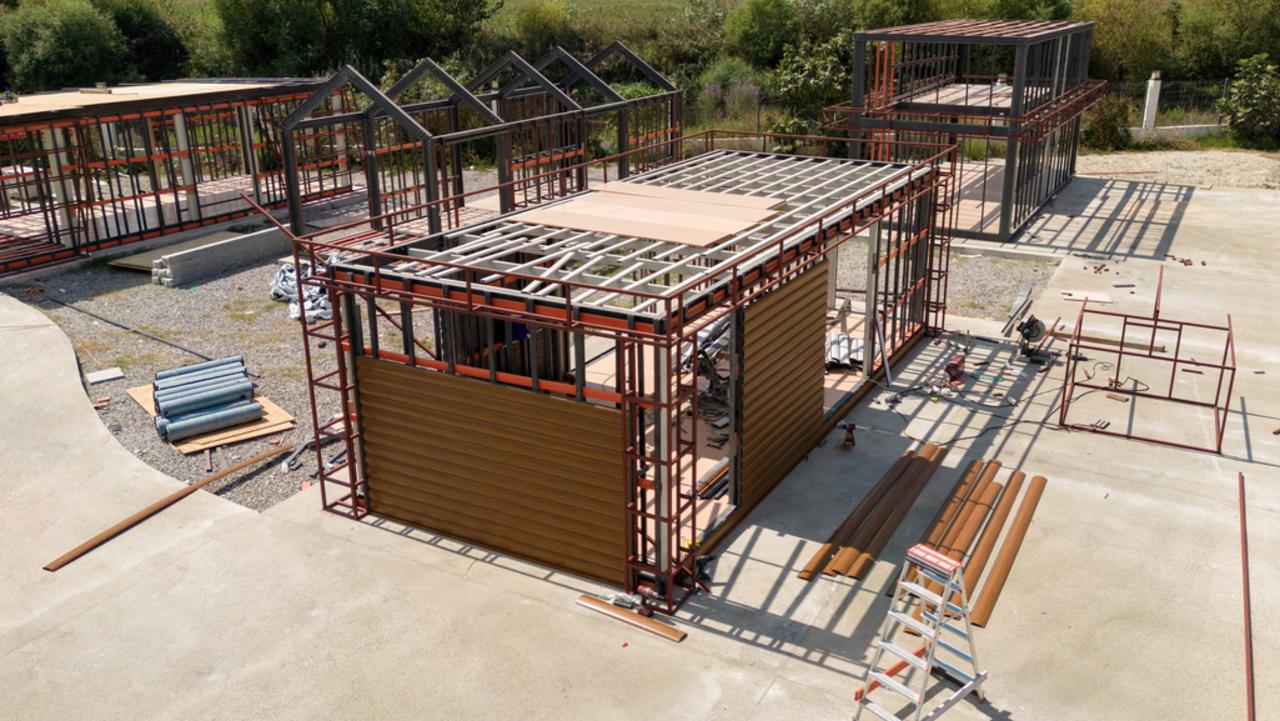Two companies have collapsed impacting 170 customers who had poured $6 million into their dream tiny homes.
The businesses, called MyTinyHomeKit Pty Ltd and Property Magician Pty Ltd, were run by 25-year-old Spencer Porter with the companies designing, manufacturing and supplying tiny homes.
Michael Caspaney from Menzies Advisory was appointed to oversee the voluntary administration.
He told news.com.au there was a “lot of money and a lot of people” affected by the companies’ failure.
“It looks like about 170 people and this is just data until the customers verify it. But the accounting system had about 140 people that had deposited $5.1 million and I received phone calls from another 28 people who weren’t registered in the companies’ software and that added about $900,000 – so 170 people with $6 million deposited,” he said.
“It’s a lot worse than I thought but I don’t know how good that data is. In this first communication I need to write to all of them so they can show their situation and prove how much they have deposited.”
Customers impacted were mainly spread across the east coast of Australia including NSW, Victoria and Queensland, with some also based in South Australia, he added.
Mr Caspaney said a number of customers had paid for tiny homes that were never delivered and would not be protected by the law.
“When I was a liquidator of quite a large building company in Melbourne that went down in February last year, the Victorian government did pay up to $50,000 for people that didn’t have home warranty insurance.
“But that is another thing an unregulated ‘builder’ gets away with, as when a builder is registered they have to pay home warranty insurance, but I don’t think the Victorian government will be paying any of these deposits.”
The administrator is also aware of eight former and current employees impacted too, who were owed unpaid wages and annual leave. One employee was claiming $9500 in unpaid wages, he added.
My Tiny Home Kit had already faced numerous customer complaints to Consumer Affairs Victoria. The company agreed to make changes to the company’s business practices in January and had entered into an enforceable undertaking.
For affected customers, he had committed to making contact by email, post and text within three business days of the undertaking’s commencement date and offering customers the choice of:a full refund within 21 days or delivery of their completed tiny home kit.
For all customers, Porter agreed to not offer to supply or accept payment for kits that the company can’t deliver within an agreed time period or a reasonable time and create and maintain a dedicated email account for refund requests and feedback.
He also agreed to implement an internal complaints management system to record and respond to complaints.
However, in April Porter sought and was granted extensions to the time My Tiny Home Kits had to refund affected customers and provide evidence to Consumer Affairs Victoria.
Its director Nicole Rich granted the company’s request to vary the enforceable undertaking on the basis that it had shown a commitment to comply with the promises it gave, including providing refunds or final delivery of tiny homes to several affected consumers under the original enforceable undertaking.
In November last year, the firm was also fined $4000 for breaches of South Australia’s building laws after telling consumers it would organise both council approvals and builders to carry out works via sister company My Property Magician.
In a prosecution brought by SA consumer watchdog Consumer and Business Services, the Adelaide Magistrates Court was told that Porter was contacted by a South Australian interested in purchasing one of the kits.
The consumer was told council approvals – if needed – were included in the purchase price, and that builders would be able to install both solar panels, a composting toilet and a dual water tank if needed.
Porter was subsequently paid $27,500, but the kit was never provided or constructed.
The court was told that the month prior to sentencing, Porter had paid the consumer $35,000 as compensation for both the goods that were not provided and the site works undertaken by the consumer in anticipation of construction.
Magistrate Lynette Duncan fined Porter and the business a total of $4000.
Commissioner for Consumer and Business Services, Dini Soulio, said in November: “Our licensing regime helps people choose a builder with confidence that the person they are hiring has the skills needed to do the job.
“In this case, the individual had made assurances he was neither licensed to do nor capable of offering.
“This case highlights why it’s so important for people to do their homework when engaging a builder. Ensuring a builder is licensed to do the job is a vital way of helping to protect your investment.”
Meanwhile, Mr Caspaney said a secured creditor had appointed receivers to collect $26,000 owed meaning once assets are sold they will be able to access any available money first.
He noted assets had been seized including two company cars and an aluminium cladding type machine, which were currently awaiting auction.
Porter told A Current Affair in a statement last week the decision was made to place the two companies into voluntary administration following “extensive efforts to comply with a stringent enforceable undertaking”.
“Despite our best endeavours, it became evident that meeting the stipulated expectations was unfeasible, leading us to make the responsible choice of entering voluntary liquidation,” he said.
He added his primary focus now was to ensure that the needs and concerns of customers are managed with the utmost care and professionalism during this process.
“For any inquiries regarding existing orders, refunds, or other customer concerns, please direct your questions to the appointed independent liquidator,” he added.





